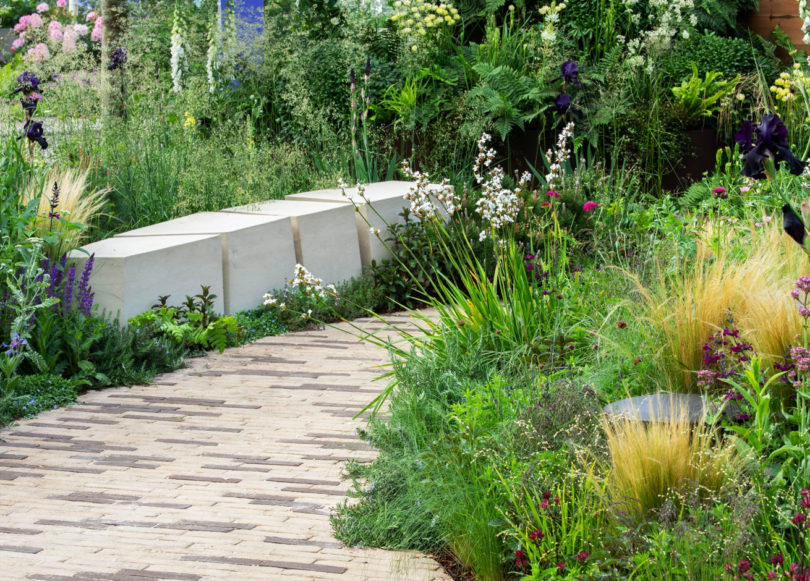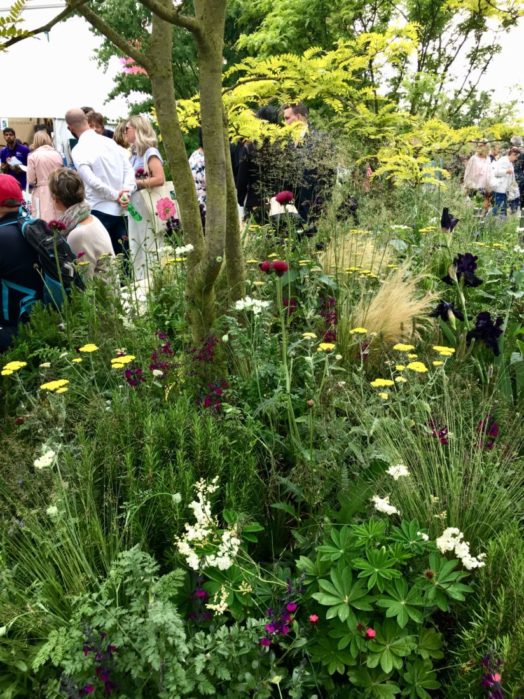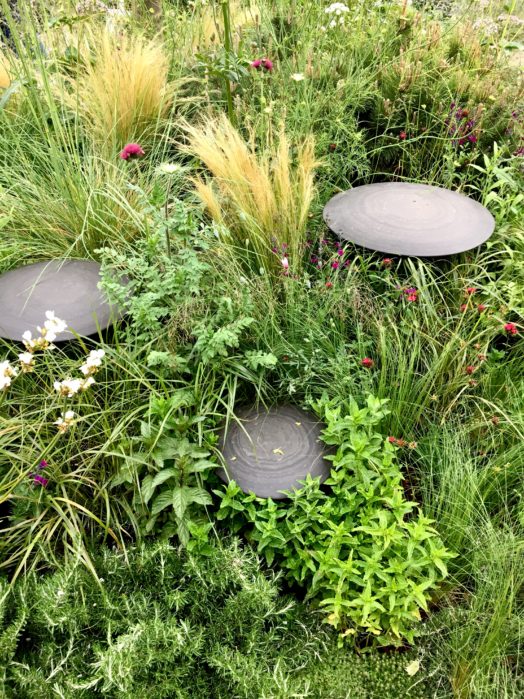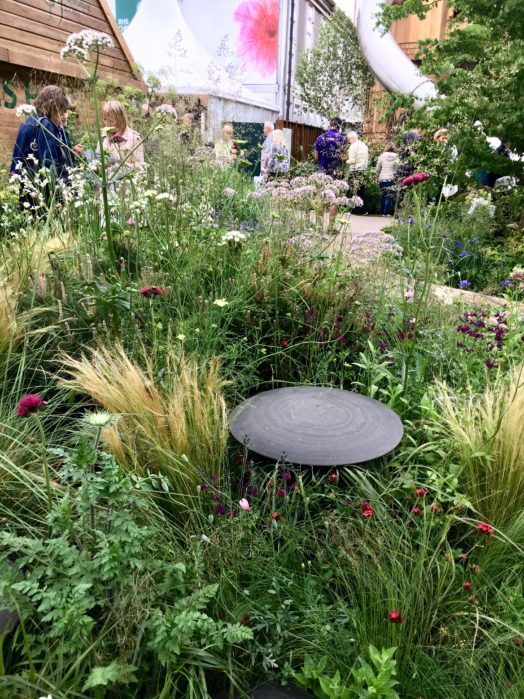One of many Chelsea Flower Show Gardens that deserves special attention is The Lemon Tree Garden, which directly referred to the issue of mental health. Inspired by the resilience, originality and determination of refugees living in Domiz camp in Northern Iraq was designed with their involvement and highlights the unexpected beauty and power hidden in the refugee camps. Designer aimed to show how plants can improve people’s wellbeing.
The traditional Islamic style was kept by star shaped water feature, radiating water rills and elaborate metal and wood fretwork screens. Channels of water provide fresh, cooling atmosphere, representing at the same time the importance of reused grey water in the Iraq’s camps. Very simple materials that can be found in real camp such as concrete and steel, were used . Food plants were placed in cans and recycled plastic bottles attached to a very interesting “innovation wall”.

The planting included the pomegranate trees, figs, single roses, alliums, dazzling blue flowered Anchusa, the impressive lemon tree as well as herbs used in Middle Eastern cooking. These fragrant herbs could have a great impact on mind and mood. All these are reminders of refugees homeland. Resting between them make us more relaxed and smiley.
People in camps create gardens and take care of them with aim to provide food but also to keep themselves in good mental and physical condition. Possibility of growing and taking care of plants, herbs, vegetables is a great chance to socialize what means it improves social functioning and emotional well-being. The garden with its amazing plants can be the gate to escape from cruel reality , bring the solace and positive energy. The garden is a place that no matter where you are, you can relate to.

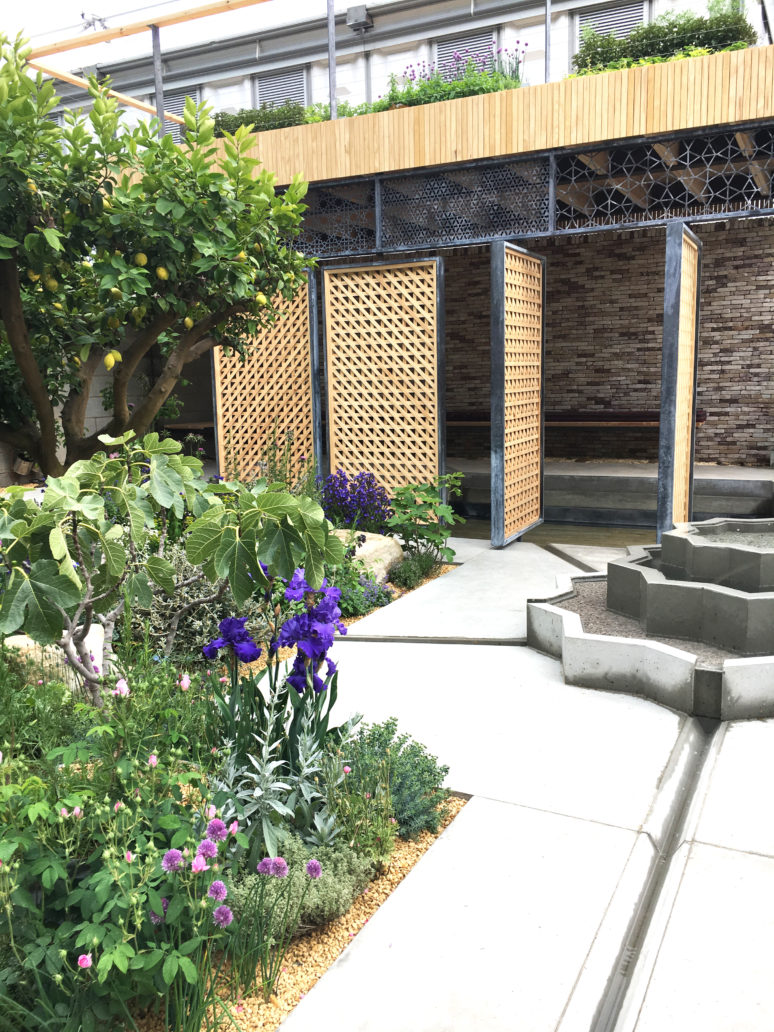
The Lemon Tree Trust supports and encourages the refugees to build camp gardens where they can grow food, create sense of beauty; seek and promote, a very important, community well-being and identity.




